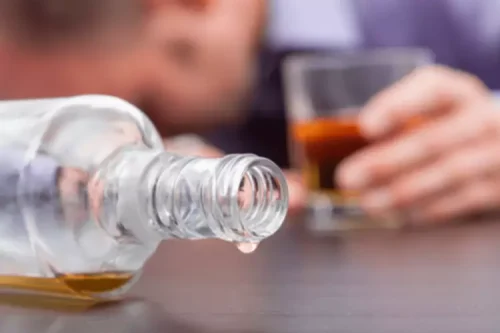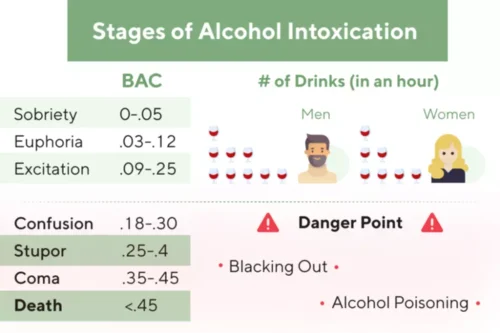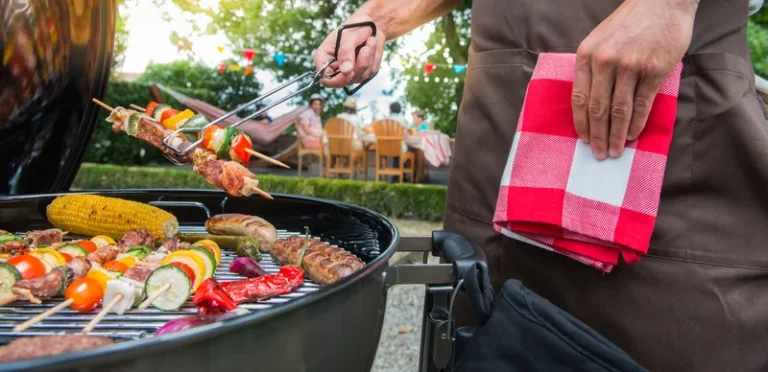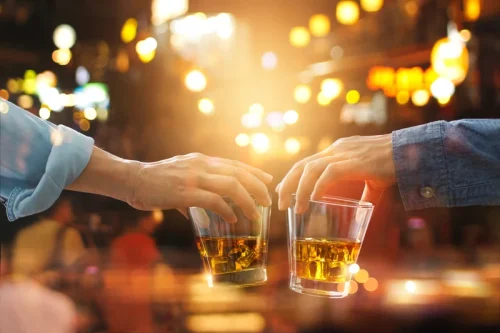
A relapse is a return to drinking or drug use after attempts have previously been made to stop. Before getting to a full-blown relapse, however, a person may experience a lapse, described as the initial use of a substance after a period of recovery.4 The late addiction types of relapse triggers researcher G. Alan Marlatt, Ph.D., referred to a lapse as an abstinence violation. According to Marlatt, what matters after a lapse is the person’s emotional response to the violation. This response can be a good indicator of whether the individual will relapse.

Write Down Coping Mechanisms
You should do this before you go back to your normal day to day lifestyle. Recovered provides a directory of treatment options that can be used to treat cocaine dependence and provide relapse prevention strategies. Relationship breakups, professional setbacks, job losses, lawsuits, deaths of family or close friends—these can be overwhelming. Even a person who has been sober for many years may break at these moments.
Types of addiction triggers

Relapse rates for substance abuse mirror those for other chronic conditions, such as asthma and diabetes, meaning that relapse is a common occurrence. It’s simply part of their process – an obstacle that must be overcome. Lack of sleep often leads to self-neglect, which can make a person more vulnerable to using again. Recovery is a day-to-day process that requires a focus on healthy living.

Managing External Triggers
- Sleep regulates and restores every function of the human body and mind.
- Ifyou are facing a medical emergency or considering suicide or self harm, please call 911immediately.
- The recovery journey can be a lonely one because you are addressing issues that other people around you may not need to address.
Using drugs or alcohol over the long term builds associations between a person’s daily routine and their experiences with intoxication. As a result, certain cues immediately flip the switch on the association and activate the craving reflex in response to external or internal triggers in recovery. Triggers may decrease in frequency the longer someone abstains from substance use, but anyone in recovery needs to be prepared to respond appropriately when triggers do arise. The majority of people who decide to end addiction have at least one lapse or relapse during the recovery process. Such triggers are especially potent in the first 90 days of recovery, when most relapse occurs, before the brain has had time to relearn to respond to other rewards and rewire itself to do so. No matter how much abstinence is the desired goal, viewing any substance use at all as a relapse can actually increase the likelihood of future substance use.
Types of Addiction Relapse Triggers
Many people seeking to recover from addiction are eager to prove they have control of their life and set off on their own. Help can come in an array of forms—asking for more support from family members and friends, from peers or from others who are further along in the recovery process. It might mean entering, or returning to, a treatment program; starting, or upping the intensity of, individual or group therapy; and/or joining a peer support group. Research has found that getting help in the form of supportive therapy from qualified professionals, and social support from peers, can prevent or minimize relapse.
This ongoing fight increases their vulnerability to cravings, which may result in a potential relapse. After a period of poor self-care, someone in recovery will likely experience some of the mental signs of relapse. They may begin to feel discontent with their progress and restless in their disintegrating routine. https://ecosoberhouse.com/ Without the proper structure and routine, a person is more likely to start thinking about using again. A trigger is an emotional, environmental or social situation that drags up memories of drug or alcohol use in the past. These memories can stir up strong emotions that lead to the impulse to use a substance again.

- Relapse prevention is a skill that takes dedication and following relapse prevention strategies.
- In fact, people who have had a major depressive episode have a 60% chance of having another.
- This will decrease your need to use substances again to feel comfortable.
- Those in recovery often have a hard time finding new ways to have fun, and it may cause them to glamorize or ruminate on their past substance abuse.
- Therapy, counseling, and support groups are all great resources to help you on your path to recovery, offering essential tools and resources needed to maintain sobriety.
- Many factors play a role in a person’s decision to misuse legal or illegal psychoactive substances, and different schools of thinking assign different weight to the role each factor plays.
Recent research published in the International Journal of Environmental Research and Public Health found that eating a more healthy diet may help lower the risk of relapse. Self-care is important for overall mental health, and home therapies such as breathing techniques and meditation may help you be more aware of your symptoms. If you are unaware of your personal triggers, recognizing depression relapse might be a challenge. Everyone will have different internal triggers, but by recognizing some of the common ones you will be better equipped to avoid or address your internal triggers. The earlier people in recovery can identify and successfully respond to triggers, the greater their chances of prolonged abstinence. Users in recovery can ask themselves some questions to help them understand their internal thoughts and feelings.

